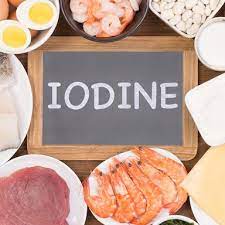
Breaking News
 The accidental data that's hard to ignore.
The accidental data that's hard to ignore.
 I Cracked The Entire Jeffrey Epstein Mystery
I Cracked The Entire Jeffrey Epstein Mystery
 Measured in hard money, the USD has already suffered a profound real devaluation
Measured in hard money, the USD has already suffered a profound real devaluation
Top Tech News
 Perfect Aircrete, Kitchen Ingredients.
Perfect Aircrete, Kitchen Ingredients.
 Futuristic pixel-raising display lets you feel what's onscreen
Futuristic pixel-raising display lets you feel what's onscreen
 Cutting-Edge Facility Generates Pure Water and Hydrogen Fuel from Seawater for Mere Pennies
Cutting-Edge Facility Generates Pure Water and Hydrogen Fuel from Seawater for Mere Pennies
 This tiny dev board is packed with features for ambitious makers
This tiny dev board is packed with features for ambitious makers
 Scientists Discover Gel to Regrow Tooth Enamel
Scientists Discover Gel to Regrow Tooth Enamel
 Vitamin C and Dandelion Root Killing Cancer Cells -- as Former CDC Director Calls for COVID-19...
Vitamin C and Dandelion Root Killing Cancer Cells -- as Former CDC Director Calls for COVID-19...
 Galactic Brain: US firm plans space-based data centers, power grid to challenge China
Galactic Brain: US firm plans space-based data centers, power grid to challenge China
 A microbial cleanup for glyphosate just earned a patent. Here's why that matters
A microbial cleanup for glyphosate just earned a patent. Here's why that matters
 Japan Breaks Internet Speed Record with 5 Million Times Faster Data Transfer
Japan Breaks Internet Speed Record with 5 Million Times Faster Data Transfer
How Iodine Deficiency Increases Your Risk for Chronic Illnesses

Iodine is essential to your health. Unfortunately, data collected by the U.S. National Health and Nutrition Examination Survey has revealed a significant drop in median urine iodine values.1 The median iodine level measured in urine samples was 320 micrograms per liter (mcg/L) between 1971 and 1974. By 1988, it dropped to 145 mcg/L. Surveys taken in the years since show levels have stabilized, except in pregnant women whose median urine level dropped further to 125 mcg/L.
Many people don't know they need to consume a little iodine each day to maintain healthy levels of this essential micronutrient. Your body uses iodine across several organ systems, but it is most commonly known to synthesize thyroid hormones that regulate nearly every bodily system. Several thyroid hormones secreted by your thyroid gland are transported throughout your body where they control your metabolism and energy production.2
This means that every cell in your body depends on the production and function of thyroid hormones. Your thyroid gland is under the control of your pituitary gland that is located at the base of your brain. In turn, the pituitary gland is under the control of your hypothalamus. In other words, there are several steps needed to identify low thyroid hormone levels and to tell your thyroid gland to begin secreting more.
A 2017 study published in the British Journal of Nutrition3 evaluated the iodine levels of cow's milk and milk alternatives in search of a potential reason for this growing iodine insufficiency.
Milk Substitutes Are Low in Iodine
Researchers from the University of Surrey evaluated the iodine content in 47 milk alternatives and compared those levels to cow's milk. The researchers included almond, soy, coconut, rice and hazelnut milk alternatives, but excluded products marketed specifically for infant consumption.4 They discovered the majority of brands did not have adequate levels of iodine as compared to cow's milk. Most contained only 2% of that found in cow's milk.

 Another CIA classic
Another CIA classic Advanced Propulsion Resources Part 1 of 2
Advanced Propulsion Resources Part 1 of 2

